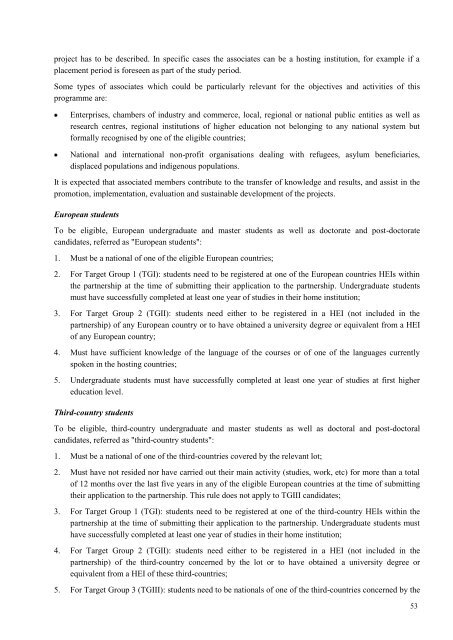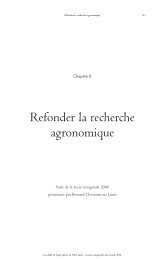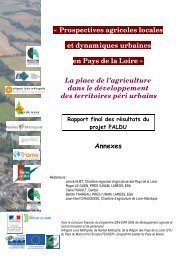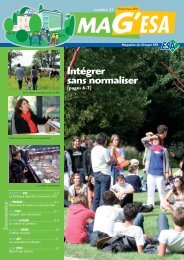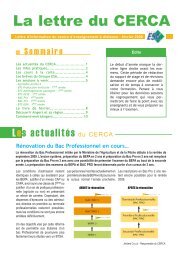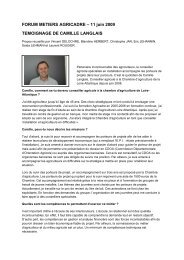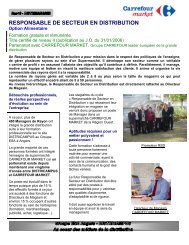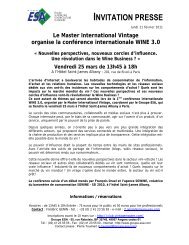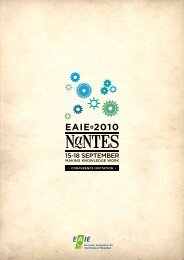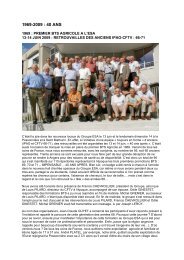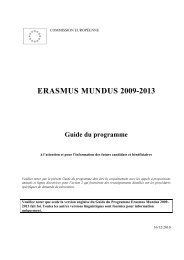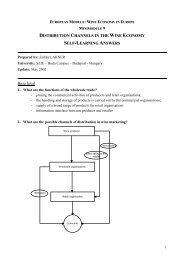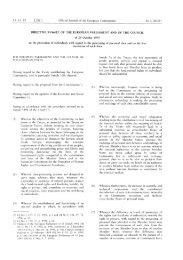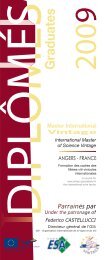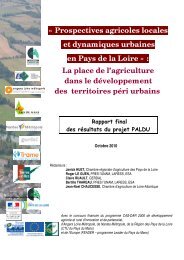ERASMUS Mundus Program Guide - EACEA - Europa
ERASMUS Mundus Program Guide - EACEA - Europa
ERASMUS Mundus Program Guide - EACEA - Europa
Create successful ePaper yourself
Turn your PDF publications into a flip-book with our unique Google optimized e-Paper software.
project has to be described. In specific cases the associates can be a hosting institution, for example if a<br />
placement period is foreseen as part of the study period.<br />
Some types of associates which could be particularly relevant for the objectives and activities of this<br />
programme are:<br />
Enterprises, chambers of industry and commerce, local, regional or national public entities as well as<br />
research centres, regional institutions of higher education not belonging to any national system but<br />
formally recognised by one of the eligible countries;<br />
National and international non-profit organisations dealing with refugees, asylum beneficiaries,<br />
displaced populations and indigenous populations.<br />
It is expected that associated members contribute to the transfer of knowledge and results, and assist in the<br />
promotion, implementation, evaluation and sustainable development of the projects.<br />
European students<br />
To be eligible, European undergraduate and master students as well as doctorate and post-doctorate<br />
candidates, referred as "European students":<br />
1. Must be a national of one of the eligible European countries;<br />
2. For Target Group 1 (TGI): students need to be registered at one of the European countries HEIs within<br />
the partnership at the time of submitting their application to the partnership. Undergraduate students<br />
must have successfully completed at least one year of studies in their home institution;<br />
3. For Target Group 2 (TGII): students need either to be registered in a HEI (not included in the<br />
partnership) of any European country or to have obtained a university degree or equivalent from a HEI<br />
of any European country;<br />
4. Must have sufficient knowledge of the language of the courses or of one of the languages currently<br />
spoken in the hosting countries;<br />
5. Undergraduate students must have successfully completed at least one year of studies at first higher<br />
education level.<br />
Third-country students<br />
To be eligible, third-country undergraduate and master students as well as doctoral and post-doctoral<br />
candidates, referred as "third-country students":<br />
1. Must be a national of one of the third-countries covered by the relevant lot;<br />
2. Must have not resided nor have carried out their main activity (studies, work, etc) for more than a total<br />
of 12 months over the last five years in any of the eligible European countries at the time of submitting<br />
their application to the partnership. This rule does not apply to TGIII candidates;<br />
3. For Target Group 1 (TGI): students need to be registered at one of the third-country HEIs within the<br />
partnership at the time of submitting their application to the partnership. Undergraduate students must<br />
have successfully completed at least one year of studies in their home institution;<br />
4. For Target Group 2 (TGII): students need either to be registered in a HEI (not included in the<br />
partnership) of the third-country concerned by the lot or to have obtained a university degree or<br />
equivalent from a HEI of these third-countries;<br />
5. For Target Group 3 (TGIII): students need to be nationals of one of the third-countries concerned by the<br />
53


